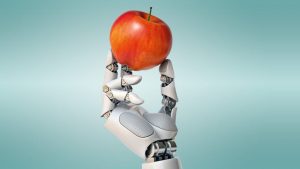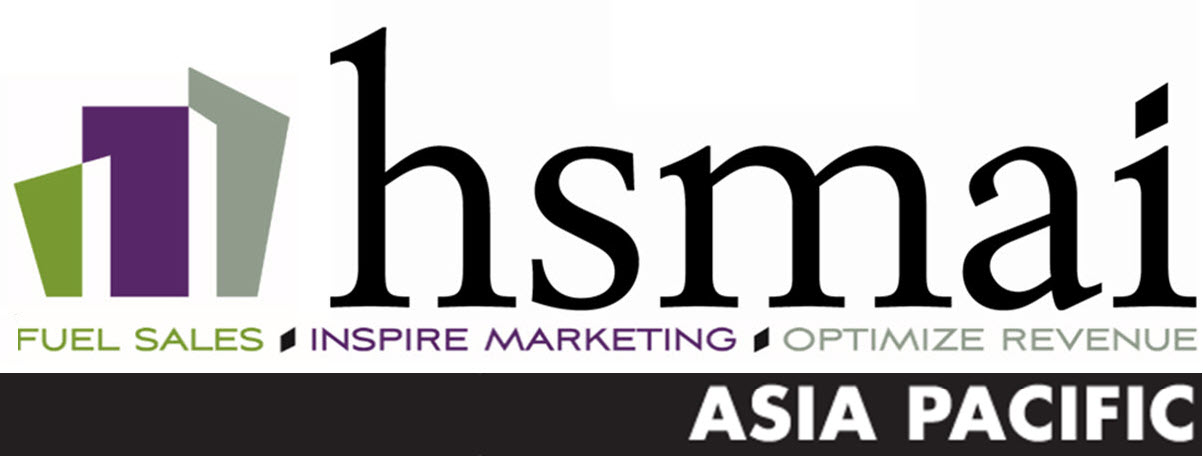
How will AI shape the future of Hospitality?
Senior Commercial Leaders spend an afternoon with a futurist workshopping ideas they think AI could be used for.
Artificial intelligence (AI) is already being applied to improve customer services and operations in the hospitality industry, however, what really excited people at the recent HTNG Connect and HSMAI’s Revenue Optimization Conference (ROC) organised by HTNG & HSMAI Asia Pacific, is its potential to offer unprecedented opportunities to enhance guest experiences, streamline operations, and promote sustainability. Senior leaders in commercial and tech sectors are actively exploring the potential of AI, and the future of hospitality looks both promising and transformative.
Personalized Guest Experiences
 One of its most compelling applications in hospitality is AI’s capability to personalize guest experiences. By combining AI and facial recognition technology, hotels can automate the process of providing tailored services. For example, AI can recognize returning guests and instantly access their preferences, allowing hotels to offer personalized room settings, dining options, and even entertainment tailored to individual or group preferences. Joshua Ryan-Saha, Director of TravelTech Scotland, elaborated on this vision at the HSMAI ROC 2024 conference: “Imagine a scenario where AI recognizes a returning guest, greets them by name, and automatically adjusts the room temperature, lighting, and amenities to their liking. This level of personalization makes guests feel truly valued and enhances their overall experience.”
One of its most compelling applications in hospitality is AI’s capability to personalize guest experiences. By combining AI and facial recognition technology, hotels can automate the process of providing tailored services. For example, AI can recognize returning guests and instantly access their preferences, allowing hotels to offer personalized room settings, dining options, and even entertainment tailored to individual or group preferences. Joshua Ryan-Saha, Director of TravelTech Scotland, elaborated on this vision at the HSMAI ROC 2024 conference: “Imagine a scenario where AI recognizes a returning guest, greets them by name, and automatically adjusts the room temperature, lighting, and amenities to their liking. This level of personalization makes guests feel truly valued and enhances their overall experience.”
Another innovative idea discussed during the conference involves integrating AI with immersive dining experiences. Picture ordering a dim sum meal and having your dining environment transform to reflect being in Hong Kong, complete with appropriate lighting, sounds, and visuals. This kind of immersive experience adds a unique and memorable element to the stay, elevating the standard of hospitality.
AI in Sustainability and Operations
AI’s role in promoting sustainability within the hospitality industry is also significant. One forward-thinking concept is to use AI alongside blockchain technology to verify and validate resource use in hotels. This could include monitoring energy and water consumption and providing accurate data on a hotel’s environmental impact. Such transparency is crucial for hotels aiming to improve their ESG (Environmental, Social, and Governance) credentials and meet the growing demand for sustainable practices. Ryan-Saha, who led a workshop at the Conference titled Futures AI Workshop, emphasized the importance of this application: “Using AI to track and report sustainability metrics not only helps hotels meet regulatory requirements but also appeals to environmentally conscious travelers who prioritize green practices.”
Operational efficiency can also benefit immensely from AI integration. For instance, robots equipped with AI can handle logistics such as receiving and transporting goods within the hotel, checking delivery volumes against purchase orders, and delivering items to specific locations based on real-time data. This reduces losses, prevents theft, and ensures that operations run smoothly.
AI in Health and Wellness
 Health and wellness are becoming increasingly important for travelers, and AI can play a significant role in this area. AI systems can interact with guests to understand their dietary needs and preferences, offering personalized meal recommendations that cater to specific health requirements. This ensures that guests not only enjoy their meals but also maintain their well-being during their stay. One idea was presented at the Conference suggested AI agents could recommend bespoke meals based on a guest’s nutritional needs. For instance, older guests or those with specific dietary requirements could speak to an AI system that would record their needs and suggest appropriate menu options. This level of personalization not only enhances the dining experience but also ensures that health and wellness are prioritized.
Health and wellness are becoming increasingly important for travelers, and AI can play a significant role in this area. AI systems can interact with guests to understand their dietary needs and preferences, offering personalized meal recommendations that cater to specific health requirements. This ensures that guests not only enjoy their meals but also maintain their well-being during their stay. One idea was presented at the Conference suggested AI agents could recommend bespoke meals based on a guest’s nutritional needs. For instance, older guests or those with specific dietary requirements could speak to an AI system that would record their needs and suggest appropriate menu options. This level of personalization not only enhances the dining experience but also ensures that health and wellness are prioritized.
HR Compliance and AI

Robotic process automation in hotel HR departments streamlines recruitment, matching candidates’ qualifications and personalities with job roles to ensure perfect fits and regulatory compliance.The AI analyzes applications, conducts initial screenings, and matches candidates to roles based on an advanced algorithm that considers skills, experience, and personality traits. This system not only speeds up the hiring process but also ensures that all hires meet regulatory requirements and fit well within the team dynamic.
Recognition Glasses

Front desk operations use biometrics to enhance guest recognition and service personalization. Receptionists wear smart glasses equipped with biometric recognition technology that automatically identifies guests as they approach the front desk. The glasses display key information about guests’ past stays, preferences, and special requests, allowing even new staff members to provide consistent, personalized service and maintain high standards of hospitality.
Luxury Upselling
Autonomous decision-making systems analyze guests’ spending patterns and social media activity to tailor personalized upselling offers in real-time. This AI-driven approach ensures that guests receive highly relevant promotions and recommendations, enhancing their luxury experience and driving additional revenue for the hotel.
Eco-personalised Housekeeping
 Advanced AI-driven algorithms analyze guest preferences in detail, including preferred cleaning products (eco-friendly, hypoallergenic), specific times for room cleaning, and preferred laundry methods (cold wash, air drying). This level of personalization ensures that all services are tailored to individual guest needs. Guests can set their housekeeping and laundry preferences through an in-room interface, receive real-time updates on their resource use, and get tips on how to reduce their environmental impact. This system empowers guests to actively participate in sustainability efforts and make informed choices, enhancing both their experience and the hotel’s eco-conscious operations.
Advanced AI-driven algorithms analyze guest preferences in detail, including preferred cleaning products (eco-friendly, hypoallergenic), specific times for room cleaning, and preferred laundry methods (cold wash, air drying). This level of personalization ensures that all services are tailored to individual guest needs. Guests can set their housekeeping and laundry preferences through an in-room interface, receive real-time updates on their resource use, and get tips on how to reduce their environmental impact. This system empowers guests to actively participate in sustainability efforts and make informed choices, enhancing both their experience and the hotel’s eco-conscious operations.
Future Trends and Innovations
The future of AI in hospitality is full of potential. From enhancing guest interactions to optimizing operations and promoting sustainability, AI is set to drive significant advancements in the industry. As hotels continue to explore and adopt these technologies, they will be able to offer more personalized, efficient, and sustainable services, meeting the evolving needs and expectations of their guests.
Ryan-Saha concluded, “The integration of AI into hospitality is not just about adopting new technologies; it’s about reimagining the entire guest experience. By leveraging AI, we can create environments that are more responsive, personalized, and sustainable, setting a new standard for the industry.”
The journey towards a fully AI-integrated hospitality industry is underway, and the innovations discussed at the joint HSMAI ROC 2024 conferences are just a glimpse into a future where technology and hospitality seamlessly blend to offer unparalleled guest experiences.




